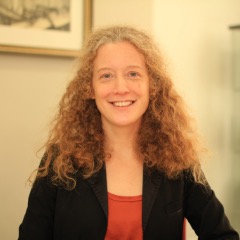You are not currently logged in. Please create an account or log in to view the full course.
Understanding Development
- About
- Transcript
- Cite
Global Development and Gender
In this course, Dr Fanny Froehlich (University of Bristol) explores global development and gender. In the first lecture, we think about what development is. In the second lecture, we think about local and global development strategies. In the third lecture, we think about the role of Non-Government Organisations (NGOs) in development. Next, we think about the political economy of development. In the fifth and final lecture, we think about some key theories of development.
Understanding Development
In this lecture, we think about what development is, focusing in particular on: (i) defining the age of development as beginning with Harry S. Truman’s inaugural address on 20 January 1949, within which he described the Southern Hemisphere as “underdeveloped”; (ii) the focus in the 1950s and 60s being on the connection between development and economic growth; (iii) the shift in the late 1970s to recognising development as being connected to poverty reduction and achieving a minimum standard of living for citizens; (iv) the 1970s as a time when it was viewed that institutions had a greater responsibility to employ poverty reducing measures, rather than simply relying on the market; (v) the employment of structural adjustment programs and other neoliberal economic policies in the 1980s and 90s; (vi) a focus in the 1990s on good government and democracy as a key factor in development; (vii) the focus in the 2000s on sustainable development; (viii) one critique of global development being the dependency of some more agriculturally focused states on more technologically developed states; (ix) Arturo Escobar’s critique of unequal development and Dambisa Moyo’s declaration that aid is dead; (x) the Millenium Development Goals and Sustainable Development Goals adopted through the 21st century; (xi) understanding gender, from a scholarly perspective, to reflect the societal constructs surrounding the roles and relationships of the sexes; (xii) the four ways of thinking about gender being that it is plural and situational, it is relational, it represents intersexual power relations and it intersects with other social identities; (xiii) work by activists and scholars like Kimberlé Crenshaw on intersectionality; (xiv) queer theory, which promotes the sociological separation of sex and gender; (xv) the two key links between gender and development being that development can have different consequences for people of different genders, and that the global differences in viewpoints on gender question the efficacy of a global development strategy.
Cite this Lecture
APA style
Froehlich, F. (2024, June 05). Global Development and Gender - Understanding Development [Video]. MASSOLIT. https://massolit.io/courses/global-development-and-gender/understanding-development
MLA style
Froehlich, F. "Global Development and Gender – Understanding Development." MASSOLIT, uploaded by MASSOLIT, 05 Jun 2024, https://massolit.io/courses/global-development-and-gender/understanding-development

